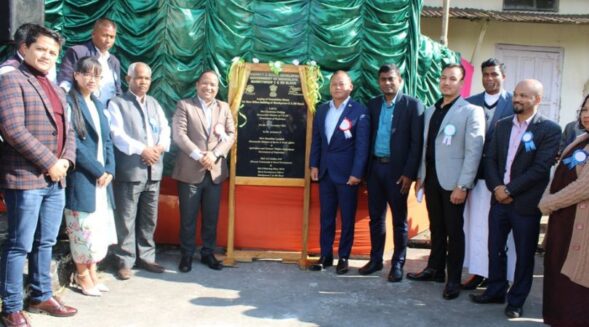
SHILLONG:
Advocate Erwin K. Syiem Sutnga has said that in the 50 years of the state’s existence, the issue of the reservation policy could be the cause for the division of Meghalaya.
“Since the two sides—the Garos and the Khasis-Jaintias—are showing their own arguments and reasons (on the reservation policy),” Sutnga told reporters.
He also said that the government wants to discuss only the roster system without touching the reservation policy, even though he added that he understands the dilemma it is in.
The advocate said that it is here that all stakeholders should come forward to help the government on the matter since any resultant outcome from the case will affect everyone in the state.
Sutnga said that the demand of Voice of the People Party (VPP) president and Nongkrem legislator Ardent Miller Basaiawmoit to discuss the reservation policy is right since the whole issue stems from it.
According to him, the reservation policy has been in existence for 50 years in Meghalaya, and as per the Constitution of India, it cannot be in circulation for more than 10 years.
“In fact, the reservation policy should be reviewed every ten years,” he added.
The advocate said that the reservation policy was enacted at a time when the state was born and Meghalaya was backward.
According to him, then the Khasis-Jaintias and Garos were given 40 percent reservation each, other tribes 5 percent, and general category candidates were given 15 percent, but there was no reservation for the physically challenged.
“Overall, the reservation was 40–40 percent each, but in the districts, it was 80 percent,” Sutnga said.
He points out the Indra Sawhney case, wherein the Supreme Court, while deciding on reservations for other backward classes, accepted a 50 percent cap on reservations, but according to him, one can give justification(s) for going above that mark.
Sutnga, while pointing out one difficulty, stated that as per the Supreme Court directive to the centre, it should define the guidelines: “How does one identify the backward classes?”
He said that among the Scheduled Tribes (ST), there are the creamy layer, but then there are also those who are still backward, and in these 50 years of existence of Meghalaya, no guidelines have been framed for those who are justified in getting the 40 percent reservation.
Sutnga said that post(s) that could not be filled by a particular community can be carried over for only one year and not more than that, but with the current roster system being followed, post(s) that could not be filled for more than one year have been carried over.
“So now it has been specifically mentioned that post(s) that could not be filled by a particular community can be reserved only for a year; over and above that, they have to be re-advertised,” he said.
He said that if the carryover has been since 1972, then it is a violation of the Reservation Policy.
Sutnga said that the government wants to discuss only the roster system without touching the reservation policy since it understands this will have political repercussions.
According to him, the roster system has sacrificed merit.






